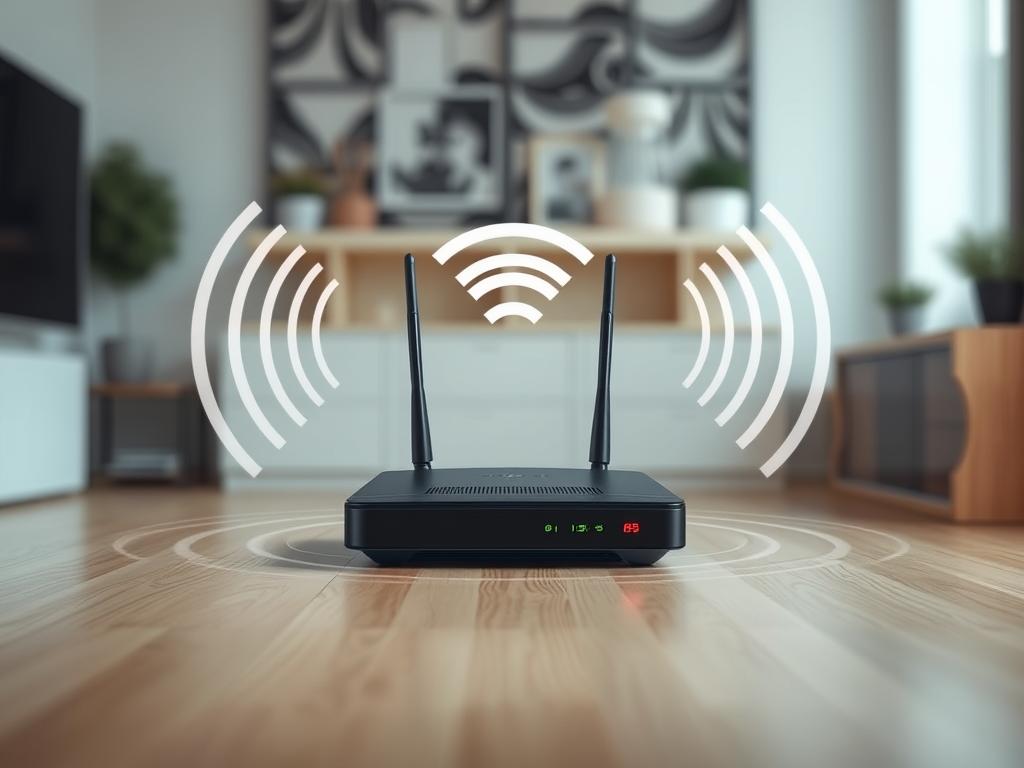
Are you plagued by infuriatingly slow mobile internet speeds at home or in your office? Do you waste time battling dead spots where your WiFi just won't penetrate? It's a common problem in the UK, typically caused by weak 4G LTE signals inside your building. A 4G signal booster, strategically applied, can be a lifesaver, working nearly as a WiFi router range extender. This guide details how to use the strength of a 4G signal booster together with your current Wi-Fi infrastructure to provide extended WiFi coverage and increased WiFi signal strength.
The 4G Signal Booster: Your Gateway to Better WiFi
The trick is to take the cellular internet and leverage it to create a superior, more reliable internet connection that you can then share via your Wi-Fi router. Think of it as creating a hybrid network, blending the benefits of cellular data with the convenience of your home network. A 4G Signal booster can do this by receiving the weak 4G LTE mobile signal that is available from your mobile network operator (MNO), boosting it, and rebroadcasting a stronger signal within your home or office.
Why Bother? Common Scenarios
Poor internet connection is a common problem that can occur for a variety of reasons. Understanding the reasons enables you to select the best solution, whether it is 4G signal boosters, carrier switch, or new hardware. The following are the main reasons why the connection quality is poor and the most common solutions that you can choose from:
- Rural Broadband
If you're in a region where conventional broadband is slow or patchy, a consistent 4G signal, augmented by a 4G signal booster, can be your only internet connection. - Black Spots at Home
Obstacles to WiFi signal like thick walls or the materials used in the building may create dead spots. A strategically placed 4G booster can provide the initial internet power necessary for your wireless router to distribute a usable signal throughout the property. - Temporary Locations (Building Sites, Caravans)
Traditional broadband infrastructure in the form of DSL lines or fiber-optic cables is not what these locations typically have access to. If you need secure remote internet access but lack access to traditional broadband, a 4G signal booster is the best option.
How it Works: Bridging 4G and WiFi
The key to making this work is using a 4G LTE modem or a mobile hotspot in conjunction with your 4G signal booster. Here’s the general process:
- Boost Your 4G Signal
Install a 4G signal booster. Models like the Nikrans LCD-300GDW 900/1800 MHz are popular choices at Mobile-signal-boosters.shop, designed to amplify weak signals for multiple devices. Ensure the external antenna is positioned for optimal signal reception. - Connect via a Mobile Hotspot/Router
Use a 4G LTE modem/hotspot to connect to the boosted 4G signal. Some wireless routers have built-in 4G LTE capabilities. - Share the Connection
The 4G LTE modem/hotspot acts as your internet gateway. Your Wi-Fi router then broadcasts this connection throughout your home or office, allowing all your client devices (laptops, smartphones, tablets) to connect.
Optimizing Your Hybrid Network for Maximum Range
Once you have your 4G signal booster and router set up, here’s how to maximize your wireless range:
- Router Placement
Position your wireless router in a central location, away from walls and metal objects. Experiment with different router placement to find the best spot. - Antenna Positioning
Adjust the antennas on both your 4G signal booster’s external antenna and your wireless router. Experiment with different angles. - WiFi Channels
Use a WiFi analyser app on your smartphone to identify less congested WiFi channels. Overlapping channels cause WiFi signal interference. Switch your router to a cleaner channel. - WiFi Frequency
Use the 5 GHz band on your wireless router if your devices are compatible. It offers better speeds and is more resilient to interference than the 2.4 GHz band but has a shorter wireless range nonetheless. - Use a WiFi Extender/Repeater/Mesh WiFi System
If there are still dead spots after achieving the optimal placement of your router and booster, installing WiFi extenders, repeaters, or a Mesh WiFi system is a good solution to get wider coverage. These units simply rebroadcast your WiFi signal so that it can cover a larger area. - Firmware Updates
Take the precaution of always updating the wireless router with the latest firmware updates. These usually contain updates for performance and security.
Important Considerations
- Data Usage
Be mindful of your data plan with your mobile network operator (MNO). Streaming video and downloading large files can quickly eat through your cellular data allowance. - WiFi Security
Always use strong WiFi security protocols like WPA2 or WPA3 and a strong password protection for your SSID (Service Set Identifier - WiFi network name) to protect your wireless network. - QoS (Quality of Service)
Configure QoS (Quality of Service) settings on your wireless router to prioritize certain types of traffic (e.g., video conferencing) for a smoother experience.
Alternatives to Consider
While a 4G signal booster combined with a Wi-Fi router is a powerful solution, consider these options:
- Powerline Adapters
If wiring is inconvenient, Powerline adapters make use of your home's electrical wiring to prolong your network. - Outdoor WiFi
To extend the network perimeter, consider an outdoor WiFi access point (WAP).
Conclusion: Taking Control of Your Internet Connection
Conceived as a feasible solution to the dilemma of slow or dysfunctional internet connections, a 4G signal booster will do a great deal in terms of performance. Various rooms and areas in your home can now be comfortably covered, your experience can be enhanced and also you will receive better connectivity overall. Should you ever need to boost the strength of your mobile signal and rectify the weak points, try using either of the Nikrans LCD-300GD or Tri-band Mobile Signal Booster Nikrans NS-300GDW. You can pick these products at Mobile-signal-boosters.shop.






















